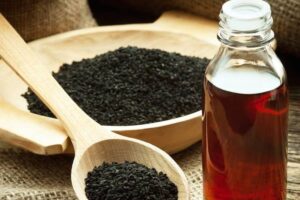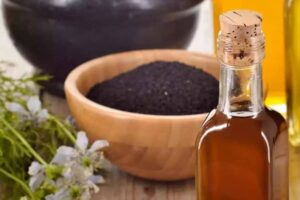Organic rice has gained significant attention in recent years due to its numerous health benefits and environmentally friendly production methods. As the demand for organic food continues to rise globally, consumers are becoming increasingly aware of the importance of choosing sustainable and healthy options. In this article, we will delve into the world of organic rice, exploring its definition, production methods, health and environmental benefits, market trends, as well as the challenges and solutions associated with its cultivation.
What is Organic Rice?
Organic rice refers to rice that is grown using organic farming practices, without the use of synthetic pesticides, herbicides, or genetically modified organisms (GMOs). To be certified as organic, rice farmers must adhere to strict guidelines and regulations set by organic certifying bodies. This ensures that the rice is grown in an environmentally sustainable and socially responsible manner.
Organic Rice Production Methods:
Organic rice farming employs various techniques to promote soil fertility, natural pest control, and weed management. Farmers rely on crop rotation, composting, and green manure to enhance soil health and nutrient content. Additionally, biological pest control methods such as beneficial insects, trap crops, and physical barriers are utilized to minimize pest damage without relying on chemical pesticides. The use of organic fertilizers, such as compost and manure, helps maintain soil fertility without introducing harmful chemicals.
Recommended best-selling organic rice
Product 1:365 by Whole Foods Market, Organic Long Grain White Rice, 32 Ounce
- Fat Free Organic Long Grain White Rice – A Naturally Fat Free Food.
- Low Sodium Organic Long Grain White Rice – A Naturally Low Sodium Food.
- Sinking Your Serving Spoon Into A Steaming Pot Of Just-Cooked White Rice-There’S Nothing Like It. Tender, Enriched With Vitamins And Iron, Ready In 20 Minutes To Plate With Curries, Stir-Fries Or Grilled Entrees, Resist The Urge To Peek While It’S Cooking.
- 365 by Whole Foods Market products give you that dance-down-the-aisles feeling, virtual aisles too! Our huge range of choices with premium ingredients at prices you can get down with makes grocery shopping so much more than tossing the basics in your cart.
- An Amazon brand
Product 2:Royal Organic Sona Masoori Rice, 20 Pound
- Authentic Indian Sona Masoori rice sourced from South India
- Medium grain, traditional Sona Masoori rice is non-sticky, light in texture, highly versatile and slightly sweet
- The best Sona Masoori rice for curries, stews, lemon rice, curd rice, or tamarind rice and is ready in about 20 – 30 minutes
- Certified USDA Organic, grown under the strictest organic guidelines, contains no additives, pesticides or preservatives
- Royal Sona Masoori rice nutrition overview: USDA organic, vegan, non-GMO, naturally gluten-free, kosher
- McCabe Organic: We’re offering organic grains, organic beans, organic flours, and processed products from Southern California.
- Quality Management: managed and controlled under USDA and CCOF Organic Certified.
- How to Cook Perfect Rice: Rinsed, Soaked, and drained rice in a pot; for the 1 cup of rice, add 1 cup and 1 Tbs plain water; cover with the lid, turn on the heat to medium-high heat until boiling up; simmer for 13-17 minutes on low heat (Brown rice or multigrain rice needs to simmer on low heat for 3-4 minutes longer than white rice.); turn off the heat and let it sit for 6-7 minutes, and enjoy.
- Nutritious Fact of Rice: McCabe Organic California Grown Rice is gluten-free, cholesterol-free, and GMO-free while rich in fibers and minerals.
- Storage: Store in a cool, dry place avoiding sunlight.
Health and Environmental Benefits:
Consuming organic rice provides several benefits for both human health and the environment. By choosing organic rice, individuals can reduce their exposure to harmful pesticides and chemicals commonly used in conventional rice farming. Studies have shown that organic rice tends to have higher nutrient content, including vitamins, minerals, and antioxidants, which contribute to better overall health. Furthermore, organic rice cultivation promotes biodiversity conservation, prevents water pollution, and reduces greenhouse gas emissions, making it a more sustainable choice for our planet.
Market and Consumer Trends:
The global market for organic rice is expanding rapidly as more consumers recognize the importance of sustainable agriculture and healthy food choices. Growing concerns about food safety, environmental sustainability, and personal health have fueled the demand for organic products, including rice. Consumer preference for organic rice stems from its perceived higher quality, better taste, and the assurance of ethical and sustainable farming practices. However, accessibility and price can still be a challenge for some consumers, as organic rice often comes with a slightly higher price tag compared to conventional rice.
Challenges and Solutions:
Despite the growing popularity of organic rice, there are challenges associated with its production. Higher production costs, limited availability, and quality control issues can make it difficult for farmers to produce organic rice at a competitive price. However, ongoing research and technological advancements in organic farming methods are helping to address these challenges. Additionally, promoting awareness and education about organic rice can encourage more farmers to adopt sustainable practices and create a larger supply to meet the increasing demand.
Conclusion
Organic rice offers a sustainable and healthy alternative to conventional rice farming. Its cultivation methods prioritize soil health, biodiversity conservation, and reduced chemical usage, leading to numerous benefits for both human well-being and the environment. As consumer awareness and demand for organic products continue to rise, it is crucial to support and promote sustainable agriculture practices. By choosing organic rice, individuals can contribute to a healthier future for both themselves and the planet.






